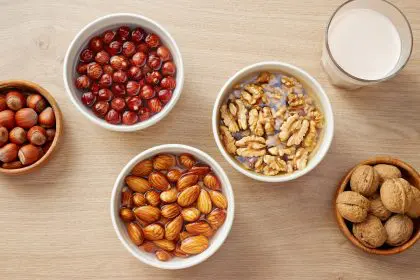This simple beverage offers remarkable advantages for your body and mind when consumed without cream or sugar
The morning elixir with hidden superpowers
Black coffee holds a special place in morning routines worldwide, with over 2 billion cups consumed daily across the globe. This beloved beverage delivers more than just a jolt of energy to start your day. When sipped without cream, sugar, or flavored syrups, coffee transforms into a nutritional powerhouse packed with compounds that actively support your health.
The deep, complex flavor profile of black coffee comes from more than 1,000 natural compounds formed during the roasting process. These compounds include various acids, proteins, and antioxidants that work together to create both the distinctive taste and impressive health benefits. A typical 8-ounce cup contains just 2 calories while delivering a rich array of micronutrients.
Recent research has uncovered surprising ways this simple drink affects your body. From enhancing brain function to potentially extending lifespan, black coffee offers benefits that make it worth considering as part of a health-conscious lifestyle. Understanding these advantages can transform your daily coffee ritual from a mere habit into an intentional wellness practice.
How black coffee transforms your mental performance
Black coffee dramatically enhances cognitive function through multiple mechanisms. The caffeine content blocks adenosine, a neurotransmitter responsible for making you feel tired, effectively creating a temporary shield against mental fatigue. This blockage triggers increased firing of neurons, enhancing concentration and mental clarity within 20 minutes of consumption.
Memory improvement occurs when caffeine and other coffee compounds stimulate the production of brain-derived neurotrophic factor (BDNF), a protein that supports neuron health and formation of new memories. Studies tracking coffee drinkers over decades have found those consuming 3-5 cups daily experienced 65% less cognitive decline compared to non-coffee drinkers.
Mood elevation represents another significant mental benefit. Black coffee increases production of dopamine and serotonin, neurotransmitters responsible for feelings of pleasure and happiness. This explains the sense of wellbeing many people experience after their morning cup. Research has connected moderate coffee consumption with a 20% lower risk of depression in long-term studies.
Protection against neurodegenerative diseases marks perhaps the most remarkable mental benefit. Regular black coffee drinkers show significantly reduced risk of developing Alzheimer’s and Parkinson’s diseases. The combination of anti-inflammatory compounds and antioxidants in coffee appears to shield brain cells from damage that leads to these conditions. Those consuming 2-3 cups daily demonstrated up to 65% lower risk of developing these disorders in population studies.
The surprising metabolic magic in every cup
Black coffee ignites your metabolism through several fascinating mechanisms. The caffeine content stimulates your central nervous system, directly increasing your metabolic rate by 3-11% for several hours after consumption. This temporary boost helps your body burn more calories throughout the day, even during periods of rest.
Fat oxidation improves significantly when consuming black coffee before exercise. The caffeine mobilizes fatty acids from fat tissues, making them available as fuel during physical activity. Studies show pre-workout coffee consumption can increase fat burning by up to 30% during subsequent exercise sessions, particularly beneficial for morning workouts.
Blood sugar regulation benefits from several compounds in black coffee. Chlorogenic acid, a polyphenol abundant in coffee, slows glucose absorption in the digestive tract and improves insulin sensitivity in cells. Regular coffee drinkers show 23-50% lower risk of developing type 2 diabetes according to large population studies tracking thousands of people over decades.
Appetite suppression occurs naturally with black coffee consumption, helping many people manage their weight more effectively. The combination of caffeine and other compounds reduces hunger hormones temporarily while increasing feelings of fullness. This effect makes black coffee a useful tool for those practicing intermittent fasting or working to reduce unnecessary snacking between meals.
The antioxidant abundance few people recognize
Black coffee ranks among the most potent antioxidant sources in the modern diet, outperforming many fruits and vegetables in total antioxidant content. A typical serving contains more antioxidants than a serving of blueberries, raspberries, or oranges. These compounds neutralize harmful free radicals that damage cells and contribute to aging and disease.
Chlorogenic acids represent the primary family of antioxidants in coffee, with each cup containing approximately 200-550 mg of these beneficial compounds. These powerful polyphenols reduce inflammation throughout the body and help protect blood vessels from damage. The concentration of these acids varies based on roasting level, with lighter roasts generally preserving higher amounts.
Reduced inflammation results from regular coffee consumption, with studies showing lower levels of inflammatory markers in frequent coffee drinkers. This anti-inflammatory effect may explain many of coffee’s long-term health benefits, as chronic inflammation underlies numerous age-related diseases. Researchers have measured up to 16% lower levels of certain inflammatory compounds in regular coffee drinkers.
Cellular protection extends to your DNA, with coffee compounds helping prevent oxidative damage to genetic material. This protective effect may contribute to coffee’s association with reduced cancer risk. Laboratory studies demonstrate that coffee extracts can reduce DNA damage by up to 40% in cells exposed to oxidative stress, suggesting a powerful protective mechanism.
The unexpected cancer-fighting potential
Black coffee contains several compounds with demonstrated anti-cancer properties. Cafestol and kahweol, naturally occurring diterpenes in coffee, have shown ability to inhibit cancer cell growth in laboratory studies. These compounds appear particularly effective against cells from liver and colorectal cancers, two of the most common malignancies worldwide.
Liver protection stands out as one of black coffee’s most well-established benefits. Regular consumption reduces risk of liver cancer by approximately 40% according to meta-analyses combining results from dozens of studies. Coffee also shows protective effects against cirrhosis and fatty liver disease, conditions that often precede liver cancer development.
Colorectal cancer risk decreases by about 15-25% in people who drink 4-5 cups of coffee daily compared to non-drinkers. The protective mechanisms include coffee’s ability to enhance colon motility, reducing exposure time of intestinal tissue to potential carcinogens. Additionally, coffee’s anti-inflammatory effects help maintain healthy colon tissue.
Melanoma risk reduction represents a more recently discovered benefit, with studies finding 20% lower rates of this dangerous skin cancer among regular coffee drinkers. The effect appears strongest for caffeinated coffee, suggesting caffeine itself may play a role alongside coffee’s antioxidant compounds. Researchers theorize coffee’s ability to absorb UV light and reduce oxidative damage to skin cells may explain this protection.
The fitness enhancer in your morning cup
Black coffee delivers remarkable benefits for physical performance, explaining why many athletes rely on it before training. The caffeine content increases adrenaline levels in your bloodstream, preparing your body for peak physical exertion. This hormonal change enhances reaction time, focus, and overall exercise capacity.
Endurance improves substantially after coffee consumption, with studies showing 24% longer exercise duration before exhaustion. This effect comes from caffeine’s ability to make fatty acids available as fuel, sparing precious glycogen stores in muscles. For runners, cyclists, and other endurance athletes, this translates to significantly improved performance in training and competition.
Pain reduction during exercise represents another valuable benefit of coffee consumption. Caffeine blocks adenosine receptors involved in pain perception, reducing the discomfort associated with intense physical effort. This analgesic effect allows for higher training intensity and volume, potentially accelerating fitness gains over time.
Recovery advantages appear in several studies examining coffee’s impact on post-exercise muscle soreness. The anti-inflammatory compounds in coffee help reduce exercise-induced inflammation, potentially shortening recovery time between training sessions. Some research suggests consuming coffee with carbohydrates after exercise increases glycogen replenishment rates by up to 66%, further enhancing recovery.
Maximizing benefits while minimizing drawbacks
Timing your consumption optimizes coffee’s benefits while avoiding potential sleep disruption. Morning consumption (between 9:30-11:30 am) aligns with natural cortisol dips for maximum alertness effects. Avoid drinking coffee within 8-10 hours of bedtime to prevent interference with sleep quality, as caffeine’s half-life ranges from 5-8 hours in most people.
Moderation remains essential, with research indicating optimal benefits at 3-5 cups daily. Beyond this amount, diminishing returns occur, and side effects become more likely. Remember that cup size matters – benefits in studies typically refer to standard 8-ounce servings containing approximately 95mg of caffeine.
Brewing methods influence both flavor and health compounds in your cup. Filter methods (pour-over, drip) remove diterpenes that can raise cholesterol while preserving beneficial antioxidants. French press and espresso retain more oils and compounds, offering different flavor profiles and slightly different health effects.
Individual sensitivity to caffeine varies significantly based on genetics. Some people metabolize caffeine up to four times faster than others due to variations in the CYP1A2 gene. If you experience anxiety, jitteriness, or sleep disruption with even small amounts of coffee, you may be a slow metabolizer who would benefit from reduced consumption or earlier timing.
Black coffee offers remarkable health benefits when consumed thoughtfully as part of an overall healthy lifestyle. From enhanced brainpower to disease prevention, this ancient beverage continues to surprise researchers with its wide-ranging positive effects. By understanding how to maximize these benefits while respecting your body’s unique response to caffeine, you can transform your daily coffee ritual into a powerful tool for long-term health and wellbeing.
















